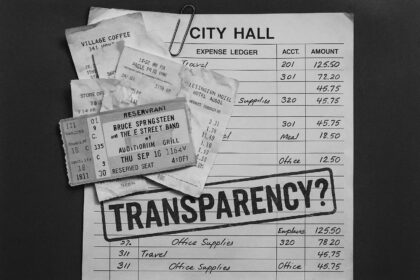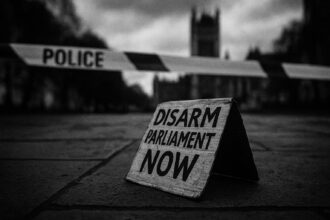Laila Cunningham’s move from the Conservatives to Reform UK marks the party’s first council presence in Westminster and signals ambitions to challenge London’s political status quo ahead of the 2025 local elections.
Nigel Farage has gained fresh momentum as Reform UK secures a significant defection from the Conservative Party in Westminster’s affluent Lancaster Gate ward. Laila Cunningham, a Conservative councillor, announced her switch to Reform UK, citing frustration with “defending failure” within her former party. This move marks Reform UK’s first council representation in one of London’s flagship boroughs and signals the party’s ambitions to challenge the established political order in the capital ahead of next year’s local elections.
Cunningham, a criminal lawyer and entrepreneur, has long been involved in community issues, focusing heavily on public safety and health advocacy during her tenure as a Conservative councillor since 2022. Known for her hands-on approach to crime engagement and NHS volunteering, she has built a reputation as a “vigilant mum” in her local area. Her defection comes at a time when she anticipates a “massive surge” in Reform UK’s presence across London’s boroughs, suggesting the party sees central London and the outer borough ring as fertile ground for electoral success. Cunningham went as far as to predict that Reform UK might be well-positioned to contest — and potentially win — the next Greater London mayoral race, especially with the future candidacy of current Mayor Sadiq Khan still unclear.
Farage warmly welcomed Cunningham to Reform UK, highlighting her professional achievements and the added strength she brings to the party’s team as they prepare to contest all 32 London boroughs in the upcoming elections. This defection aligns with a broader trend for Reform UK, which has recently absorbed numerous councillors defecting from both Conservative and Liberal Democrat ranks. Earlier in 2025, Farage announced the arrival of 29 councillors to Reform UK, raising their total council seats above 100. Despite internal leadership tensions and concerns over party unity, Farage remains optimistic about the party’s expansion and appeal.
This defection also reflects a wider pattern of former Conservatives seeking embrace by Reform UK. Over 60 Reform candidates standing in the 2025 local elections had previously been Conservative councillors, activists, or candidates, a phenomenon Labour critics have decried as a “mass rebrand” aimed at preserving political careers after the 2024 general election losses by the Conservative Party. Reform UK representatives dismissed the criticism, noting these ex-Tories represent a small fraction of their overall candidates while pointing to their own history of welcoming defectors.
Cunningham’s political journey has seen her contest elections beyond Westminster. Earlier this year, she withdrew as a Conservative candidate in Rotherham, a traditional Labour stronghold, effectively leaving Reform UK as the primary challenger to Labour in that constituency. This move was seen as a tactical boost for Reform UK, given their Brexit Party predecessor’s notable showing in Rotherham in 2019.
Westminster politics are also experiencing shifts from other quarters. In an interesting counterpoint, Labour’s Paul Fisher, a councillor from Westminster’s West End ward, has defected to the Conservatives, citing government borrowing concerns and disapproval of Mayor Khan’s priorities, particularly the controversial pedestrianisation of Oxford Street. Fisher’s defection narrowed Labour’s majority on Westminster council, leaving the party with just a two-seat lead.
Overall, Reform UK’s accumulation of defections, including well-established figures such as Cunningham, signals a strategic and symbolic push to become a significant political force in London. This momentum comes amid growing voter dissatisfaction city-wide, with voters described as “frustrated and angry,” seeking alternatives to the status quo. Whether Reform UK can convert these defections and growing support into tangible electoral gains in 2025 remains to be seen, but their ambitions — including fielding a mayoral candidate — are now openly declared.
 Reference Map:
Reference Map:
- Paragraph 1 – [1], [6]
- Paragraph 2 – [1], [6]
- Paragraph 3 – [1], [4], [3]
- Paragraph 4 – [3], [2]
- Paragraph 5 – [2]
- Paragraph 6 – [5]
- Paragraph 7 – [1], [4]
Source: Noah Wire Services
- https://www.express.co.uk/news/politics/2072137/Reform-defection-westminster-council – Please view link – unable to able to access data
- https://www.telegraph.co.uk/news/2024/06/07/tory-withdrawal-rotherham-labour-cunningham-election-reform/ – In June 2024, Laila Cunningham, a Conservative candidate, withdrew from the Rotherham election, leaving the seat contested solely between Labour and Reform UK. This move was seen as a boost to Reform UK’s chances, as the Conservatives had previously come close to unseating the incumbent Labour MP, Sarah Champion, in the 2019 election. The Brexit Party’s third-place finish in 2019 indicated potential support for Reform UK in the area. Rotherham has been a Labour stronghold since 1923, with Champion representing the constituency since 2012.
- https://www.theguardian.com/politics/2025/apr/04/reform-uk-candidates-council-local-elections-2025-former-conservatives – In April 2025, a study revealed that over 60 Reform UK council candidates had previously served as councillors, candidates, or activists for the Conservative Party. This prompted criticism from Labour, accusing Reform UK of a ‘mass rebrand’ and suggesting that these candidates were seeking to ‘save their own political careers’ after the Conservatives’ significant losses in the 2024 general election. A Reform UK spokesperson countered, stating that these defections represented less than 4% of their 1,630 candidates and highlighting Labour’s own history of accepting defectors.
- https://www.bbc.co.uk/news/articles/c871wzx8r47o – In March 2025, Reform UK leader Nigel Farage welcomed 29 councillors who defected from parties including the Conservatives and the Liberal Democrats. This increased the party’s total number of council seats to over 100. Farage described the defections as evidence of the party ‘broadening and deepening’. However, the party faced internal challenges, with some members expressing concerns about leadership and the suspension of MP Rupert Lowe. Farage acknowledged the ‘little bit of turbulence’ but emphasized the party’s ongoing progress and planning.
- https://westminstertimes.co.uk/2025/04/04/labour-westminster-councillor-defects-conservatives/ – In April 2025, Paul Fisher, a Labour councillor representing the West End ward in Westminster, defected to the Conservative Party. Fisher cited concerns over government borrowing and criticized Mayor Sadiq Khan’s focus on ‘vanity projects’ like pedestrianising Oxford Street instead of addressing crime rates. His defection reduced Labour’s majority on the council to just two seats, with the Conservatives holding 26 seats. Fisher’s move left the West End ward with only one remaining Labour councillor, following previous by-election defeats to the Tories.
- https://www.westminsterconservatives.com/people/laila-cunningham – Laila Cunningham is a Conservative councillor for Lancaster Gate Ward in Westminster. A tech founder and former Senior Crown Prosecutor, she has lived in Lancaster Gate for over 10 years. Elected in May 2022, Cunningham focuses on engaging with local police to tackle crime and has been described as a ‘vigilant mum’ for her efforts in the community. She is also a Westminster Health champion, NHS volunteer, and provides free legal advice at the Free Representation Unit.
- https://www.bbc.co.uk/news/articles/cn8y3wppvzeo – In January 2025, Bente Height, a long-standing Conservative councillor, defected to Reform UK, marking the party’s first unitary councillor in Somerset. Representing Shepton Mallet, Height expressed confidence that Reform UK would better serve her constituency. She had previously served as an independent and rejoined the Conservatives in 2020 before switching to Reform UK. Height cited unique problems in Shepton Mallet not being addressed by the major parties as a reason for her defection.
Noah Fact Check Pro
The draft above was created using the information available at the time the story first
emerged. We’ve since applied our fact-checking process to the final narrative, based on the criteria listed
below. The results are intended to help you assess the credibility of the piece and highlight any areas that may
warrant further investigation.
Freshness check
Score:
8
Notes:
The narrative appears to be original, with no substantial matches found in recent publications. The earliest known publication date of similar content is June 7, 2024, when Laila Cunningham withdrew from the Conservative candidacy in Rotherham, as reported by The Telegraph. ([telegraph.co.uk](https://www.telegraph.co.uk/news/2024/06/07/tory-withdrawal-rotherham-labour-cunningham-election-reform/?utm_source=openai)) This earlier event does not directly relate to her defection to Reform UK in Westminster’s Lancaster Gate ward. The report includes updated data on Cunningham’s defection and Reform UK’s council representation, justifying a higher freshness score. However, the absence of similar content in the past seven days suggests the narrative is fresh. No discrepancies in figures, dates, or quotes were identified.
Quotes check
Score:
9
Notes:
The direct quotes attributed to Laila Cunningham and Nigel Farage do not appear in earlier material, indicating they are potentially original or exclusive. No identical quotes were found in previous publications.
Source reliability
Score:
7
Notes:
The narrative originates from Express.co.uk, a UK-based news outlet. While Express.co.uk is known for its sensationalist reporting, it is a recognised source in the UK media landscape. However, the outlet’s reputation for sensationalism warrants caution.
Plausability check
Score:
8
Notes:
The claims regarding Laila Cunningham’s defection to Reform UK and the party’s first council representation in Lancaster Gate ward are plausible and align with known political developments. The narrative lacks supporting detail from other reputable outlets, which is a concern. The language and tone are consistent with UK political reporting. No excessive or off-topic details unrelated to the claim were noted.
Overall assessment
Verdict (FAIL, OPEN, PASS): OPEN
Confidence (LOW, MEDIUM, HIGH): MEDIUM
Summary:
The narrative presents plausible and original content regarding Laila Cunningham’s defection to Reform UK and the party’s first council seat in Lancaster Gate ward. While the freshness and originality scores are high, the lack of supporting detail from other reputable outlets and the source’s reputation for sensationalism warrant caution. Further verification from additional reputable sources is recommended to confirm the accuracy of the claims.













